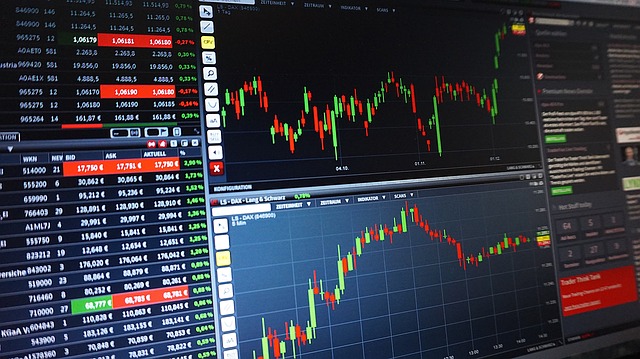Blockchain Adoption in Finance to Spur Forex
In 2017, JPMorgan Chase launched IIN, a blockchain initiative to enable the swapping of global payments data among network members using the Ethereum platform. The Interbank Information Network (IIN) can now count Deutsche Bank as one of its members. Deutsche Bank is the world’s largest clearer of euro-denominated payments and they join more than 320 other members that have agreed to share payment data on IIN. IIN expects its 400th member to join before the end of 2019, as blockchain continues to penetrate the financial services sector. But what does IIN seek to achieve?
Understanding INN
The current systems of international payments, such as SWIFT and TransferWise, are almost real-time, with only banks delaying the crediting of accounts. Still, problems arise when any query, such as a compliance issue, needs to be resolved. It may require banks to contact each other; a situation that may drag on if the said banks have no special correspondence. This will only add to the delays. Picture this same scenario with blockchain: in case of any issue, a user will only need to check the blockchain in order to access and verify any payment information in real-time. Essentially, IIN is an example of the blockchain capabilities in finance, and more specifically, cross border payments. It guarantees better security and enables the faster clearance of payments.
Benefits of Blockchain Solutions
Blockchain solutions, such as IIN, provide the infrastructure that allows for ‘atomic’ transactions, that is, transactions that clear and settle in real-time. If more banks and institutions join such networks, the utopian future of zero friction in cross border payments will become a reality. There are obvious benefits to using distributed ledgers to manage payments, but banks and other financial institutions are yet to actively participate in the space. This could be due to the inherent risk-averse nature of the industry. Distributed ledgers will enable faster settlements of payments and possibly reduce the margins of banks, while the switching costs to a new blockchain-based system may also be prohibitive. Still, for their own current and future competitiveness, banks will be better placed pursuing the benefits of blockchain, including efficiency, speed, transparency, and security.
The Forex Market
Mass adoption will trickle down these benefits. But away from banks, it is the financial markets, specifically forex, which may experience noticeable effects. The foreign exchange market is the largest financial market in the world, and it will definitely be impacted when faster, real-time transaction becomes possible. Forex currently tops $6 trillion in daily trading turnover, and the figure will only rise when faster payments become a reality. This will increase volatility and liquidity, as well as create more arbitrage opportunities for retail forex traders. Forex options and futures contracts will also likely become more prominent as either primary investments or hedging instruments.
The Final Word
Ultimately, blockchain solutions will alleviate the limitations of traditional correspondent banking systems, such as opacity, high costs, and slow clearance. Already, it is possible to make instant retail payments using eWallet payment methods and other mobile applications. And it is such convenience that the commercial world seeks to replicate. The sensitivity of big payments makes blockchain the only trusted platform to provide such innovation. To achieve success, any solution will have to address the challenges or concerns that banks may have with adoption. As one of the most regulated sectors, a major challenge would be compliance. But governments should rest easy because blockchain allows for the tracking of value ownership and networks, such as IIN, while using distributed ledger systems, do not promote anonymity. Blockchain will surely have a major impact on cross border payments, but it remains to be seen whether it will be industry-led initiatives, such as IIN, or completely new participants that will lead the charge.

